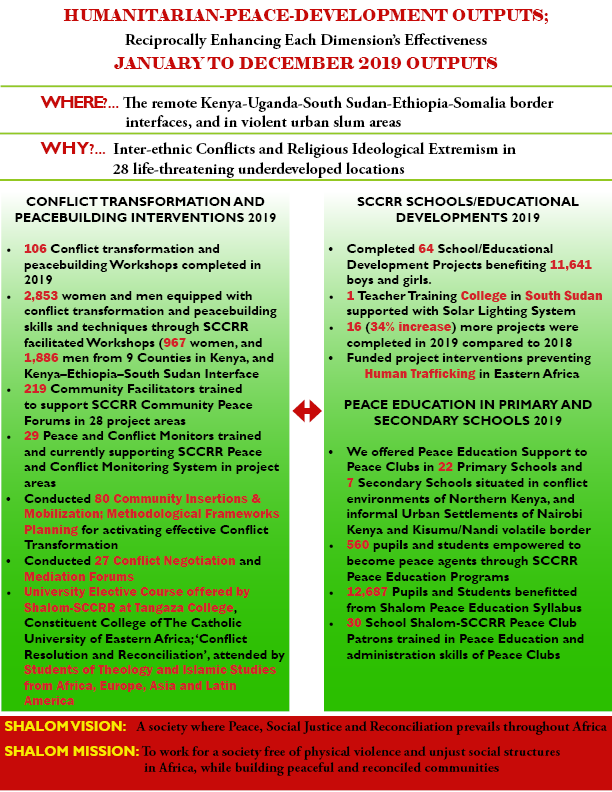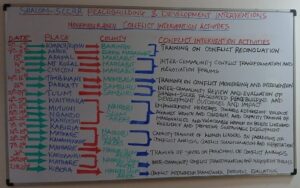Introduction
The Shalom Center for Conflict Resolution and Reconciliation (SCCRR) is a highly qualified international team of peace and development practitioners. They are men and women of different faiths from within and outside Africa. The vision of Shalom-SCCRR is: ‘A society where peace, social justice and reconciliation prevails throughout Africa’, which inspires the mission: ‘To work for a society free of physical violence and unjust social structures in Africa.’
The main objective of Shalom-SCCRR is to attain conflict resolution and reconciliation for all people in Africa, evidenced in sustainable peace and integral human development. On this basis, we empower communities engaged in interethnic conflict, and/or religious ideological extremism, to be the architects of their own interdependent future of reconciled coexistence. In practical terms, this is the product which the Shalom-SCCRR team delivers through its specialisations in research, peace studies, political science, development, environmental science, international relations, inter-religious dia-praxis, and project management.

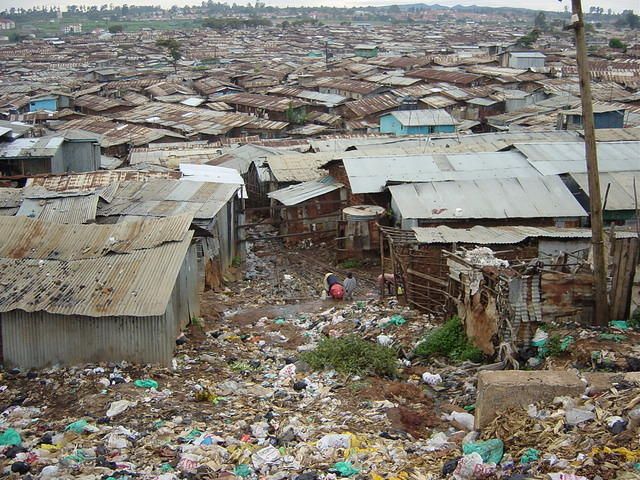
The past year was another successful year in our 10-year history. In line with the overall policy directions from the Shalom-SCCRR Board of Directors in Africa, the main objective was operationalized in 28 conflict zones, where manifest and structural violence and religious ideological extremism needed to be transformed. During the past decade Shalom-SCCRR carried out 668 conflict transformation workshops and 107 intercommunity dialogue negotiation-mediations forums in these conflict and marginalized environments. Emerging from these humanitarian-peace-development interventions the organization funded and completed 428 educational-school development projects. In particular, Shalom-SCCRR focused on 251 strategic interethnic and interreligious educational institutions which were, and still are, pivotal to furthering reconciliation processes.
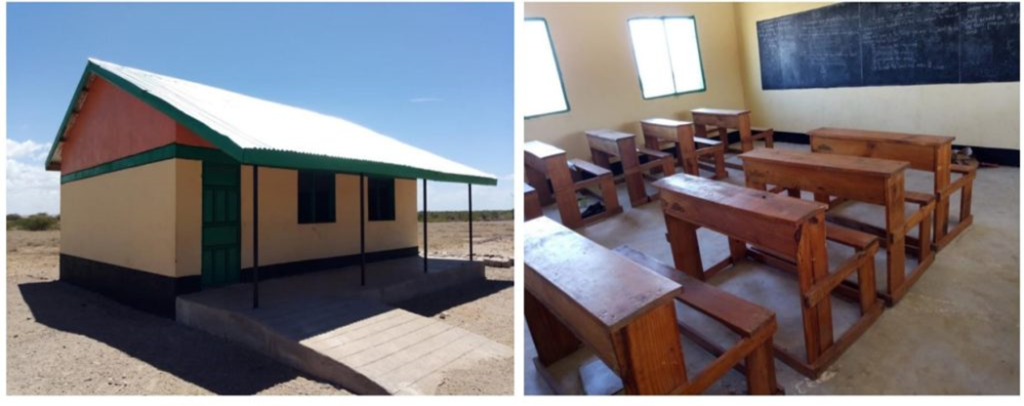
Central to the mission is the prevention and transformation of the underlying causes of inter-ethnic conflict in Africa as distinct from just dealing with the symptoms. Progressively, Shalom-SCCRR is making significant strategic interventions to counter and transform radicalization, particularly variables underpinning religious ideological extremism. The application of empirical research, of the optimum methodological rigor, to the underlying causes and persistence of conflict in its multifaceted complexity underpins all the interventions.
We work at the grassroots level, simultaneously partnering with people and organizations to accomplish life-changing sustainable peace and development. Our partner organizations and academic institutions are of the highest caliber. We operate as a strictly non-sectarian and inter-religious organization, convinced that conflict resolution and reconciliation processes require the interdependent collaboration of people from all backgrounds (www.shalomconflictcenter.org).
Shalom-SCCRR’s conflict transformation, peacebuilding and development interventions concentrated mainly on inter-ethnic and interreligious communities in Turkana, West Pokot, Samburu, Marsabit, Nakuru, Kisumu, Isiolo, Nandi, Uasin Basin-Eldoret, Garissa, and Nairobi. Many of these conflicts are located where Kenya interfaces with the borders of Ethiopia, the Ilemi Triangle, Uganda, South Sudan and Somalia. In poor urban settlement areas, Shalom-SCCRR engaged substantively with the residents of Kibera, Kariobangi and Mathare Valley in Nairobi. One cannot over appreciate the generosity, planning, logistics, professionalism and hard work that were applied in these intervention processes, regardless of whether you are a donor, organizer or peace practitioner on the front line in the conflict zones. The connectivity between Shalom-SCCRR’s conflict transformation and peacebuilding objectives, interventions and the schools/educational developments is represented below in summary form.
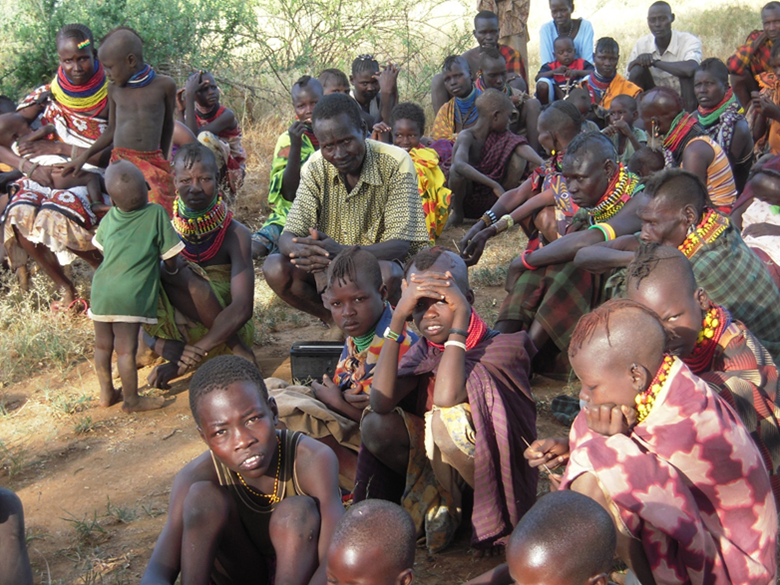
Specific Objectives and Outputs
The sacredness and dignity of all human life, human rights, environmental security, and an appreciation for ethnic and religious diversity are key measuring rods of the legitimacy of Shalom-SCCRR’s interventions with respect to its vision, mission, and objectives. Shalom-SCCRR’s work in 2019, particularly in reference to the transformation of inter-ethnic conflict and religious ideological extremism was anchored on the following specific objectives:
- To empower local community leaders with conflict transformation analytical skills and peacebuilding techniques as a forerunner to problem-solving reconciliation oriented workshops
- To conduct research into the underlying causes of conflicts so as to inform local conflict transformation interventions and policy direction for advocacy
- To influence national and regional (IGAD) peace and development policies towards the environment affected by conflict between pastoralist communities
- To strengthen the role of religious organisations, civic organisations, and NGOs in Eastern Africa with conflict transformation capacities
- To develop inter-ethnic and inter-religious schools and institutions, design and promote the Shalom-SCCRR Peace Syllabus in educational institutes, provision of solar energy, construction of classrooms, water, desks, books, sanitary, security etc., especially in areas of entrenched violent conflict, and where religious ideological extremism is fomented.
Shalom-SCCRR 2019 Programs were designed with visionary activities to transform conflict, counter religious ideological extremism, and sustain Peacebuilding progress between ethnic communities through sustainable mutual development initiatives. The key components and outputs in this methodology and process, ultimately oriented to reconciliation, are outlined above. In the year 2019, Shalom-SCCRR outputs exceeded targets set in the plans. All interventions were implemented proficiently to a very high standard.
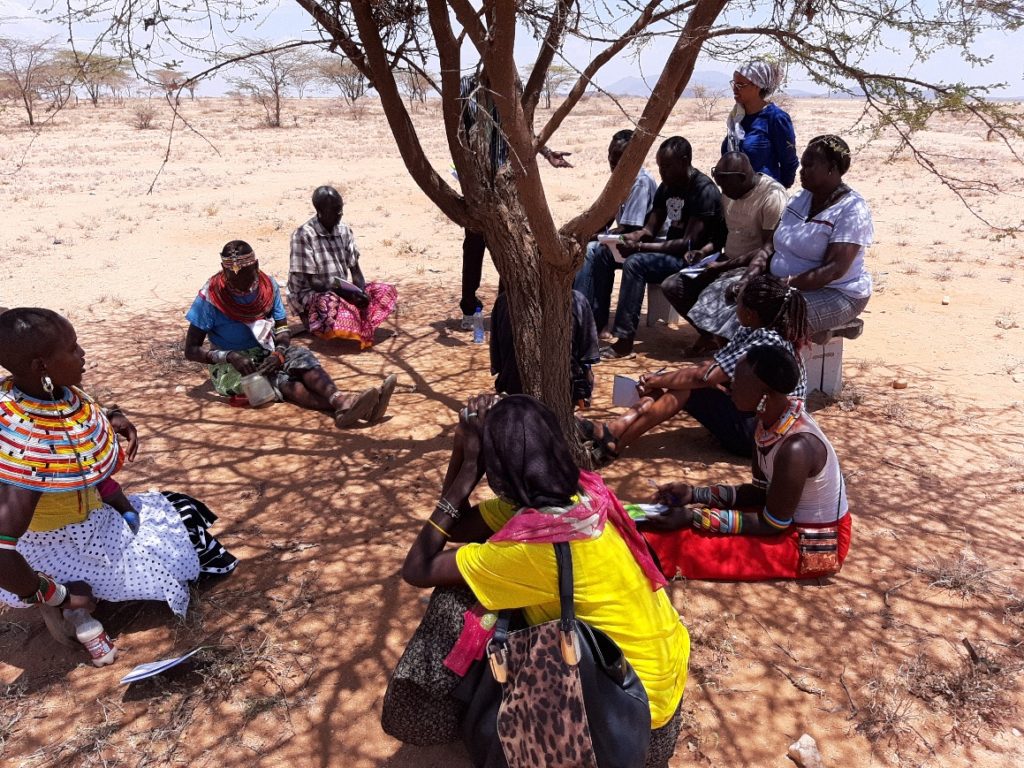
We are grateful to all donors, partners and stakeholders who continue supporting the work of Shalom-SCCRR. This support has continued to strengthen SCCRR’s resolve and commitment in working towards restoring peaceful progressive co-existence among conflicting communities in Eastern Africa. We continued the consolidation and updating of our organizational governance and range of policies to ensure good practice, integrity, accountability, effectiveness, and transparency.
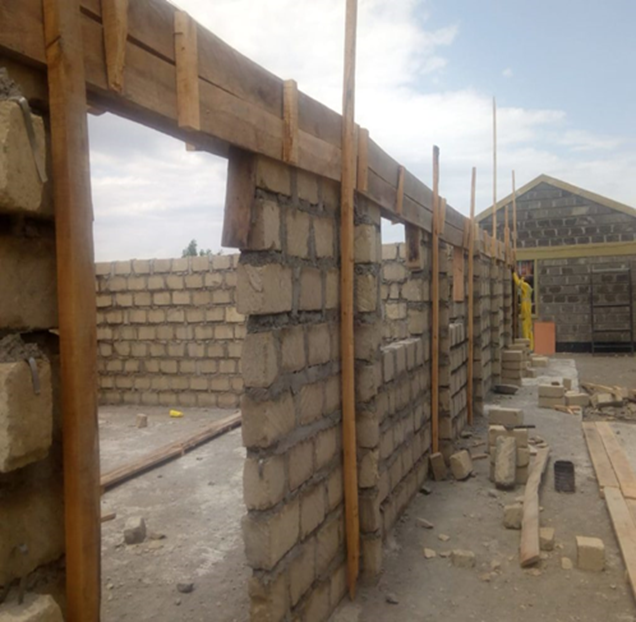
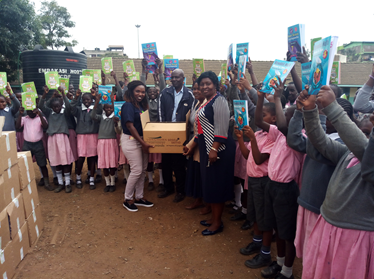
External perspectives on Shalom-SCCRR’s Approach and Effectiveness
Shalom-SCCRR puts strong emphasis on efficiency, effectiveness, and delivery of value for money in all of our activities. We were very pleased to see the high quality and the effectiveness of our work being recognized in independent and significant evaluations. Having informed Misean Cara of Shalom-SCCRR’s decision to conclude our partner relationship with them, they published in 2019 a summary article, “Conflict Transformation and Peace Building, Kenya”, concerning their evaluation of Shalom-SCCRR’s program.
“Mr Mike Williams, an international development consultant appointed on behalf of Misean Cara recently concluded an effectiveness review of the programme on conflict transformation and peace-building conducted by the Shalom Center for Conflict Resolution and Reconciliation in Eastern Africa. The programme was awarded the highest possible rating with Mr. Williams stating that:
“Shalom’s contextually driven, rigorous but adaptable and forward-looking methodology represents a model approach towards peace-building in highly complex situations, such as those that pertain in Northern Kenya. The approach, with its emphasis on community leadership, stakeholder participation, high technical competency, logic models, results frameworks, stories of change and advocacy linkages also reflects current best practice within both the Peacebuilding and development sectors. ”
We commend the integrity, leadership, and excellent work by Fr. Patrick Devine, Executive Chairman, Fr. Oliver Noonan, Country Director, and their team at Shalom. We confirm that Shalom is an organisation in good standing in relation to financial administration and corporate governance, and are pleased to have been associated as a donor with its pioneering work from 2011 to 2017”.
The core elements outlined in this report continue to be central to Shalom-SCCRR’s ‘raison d’etre’ going forward, as it ameliorates its interventions with respect to quality and quantity. In a recent interview the outgoing Provincial Leader of the Irish Province of the SMA, spoke of his high regard for the work of Shalom-SCCRR. He said he had, “witnessed the genesis of an idea that is growing from strength to strength and will, I believe, be recognized as one of the great contributions by Irish missionaries in helping to bring peace and reconciliation to Africa.”
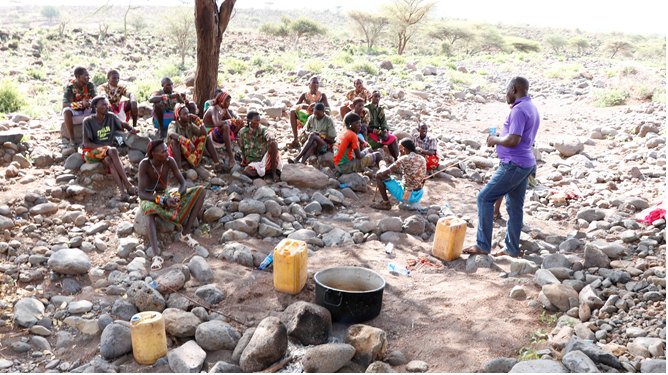
Methodology and Core Values
The humanitarian-peace-development nexus is the core constituent component of Shalom-SCCRR’s methodology enabling people to meet their basic and ontological human needs, and actualise their potential. This approach is not only about transforming violent manifest conflict primarily to settlement, which is only the absence of direct violence (negative peace), it is also about addressing the issues of structural violence as a necessary ingredient needing paramount attention in order to achieve positive peace (resolution).
Shalom-SCCRR’s core values within a framework of human rights and the dignity of life are non-violent conflict transformation, integral human development and security, integrity, respect for local culture/traditions, and justice. These core values are significantly manifested not only in our work but in the quality of our board, management, staff and partner institutions-collaborators-consulters around the world. (see website; www.shalomconflictcenter.org ).
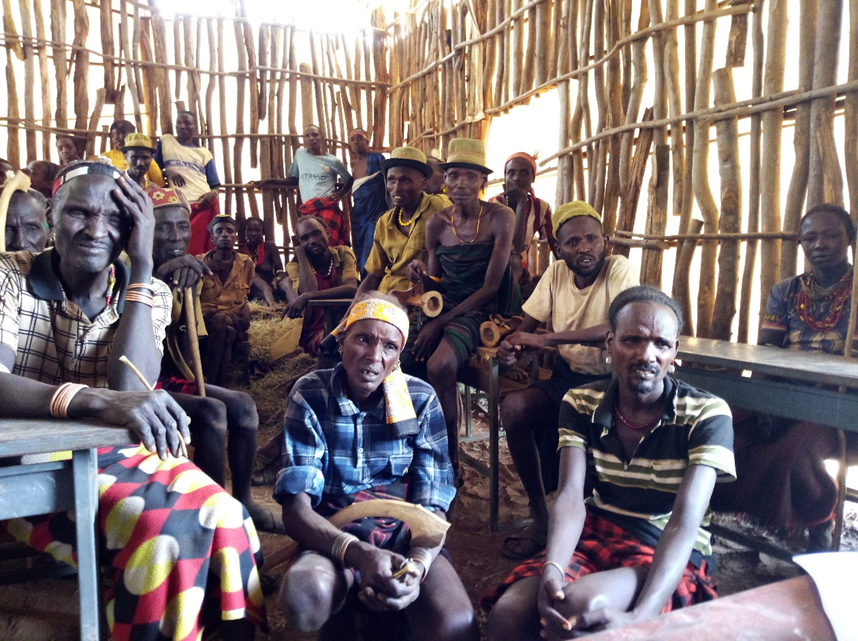
In semi-arid underdeveloped zones of inter-ethnic conflict as well as the contexts of religious ideological extremism the interventions by Shalom-SCCRR involve extraordinary diplomatic, organisational and logistical efforts from the board, management and the Shalom-SCCRR support units around the world. Much appreciation to each and everyone involved from the tens of thousands of people you have benefitted immensely. Shalom-SCCRR condemns the abominable crime of human trafficking and financially supports interventions to counter this evil. Of significant note also are the continuing Shalom-SCCRR interethnic and interreligious peace and educational interventions in South Sudan.
Killing, maiming and displacement manifest themselves frequently in these conflict environments. At the heart of the Shalom-SCCRR specialized ‘modus operandi’ is collaboration, empowering communities in conflict to be analysers, owners and architects of their own inter-dependent future of coexistence. We continually emphasise the important of this this is bottom-up approach as distinct from diagnostic solutions being prescribed from the top down. The avoidance of an arrogance of ignorance and the ignorance of arrogance by all involved in the process of conflict resolution and reconciliation is a benchmark caveat in Shalom-SCCRR’s ‘modus operandi’.
Shalom-SCCRR’s interventions empower the local communities in conflict environments to be the architects of their own interdepent future of coexistence and reconciliation. This involves; a). training on analytical skills, peacebuilding techniques and vision perspectives, pertinent to the three paradigms of Realism (Strategist), Structuralism (Peace Research) and Conflict Research, b). the levels of conflict transformation needed along the continuum from manifest violence to a conflict settlement or negative peace enroute to achieving the positive peace of conflict resolution – operationalised in reconciliation.
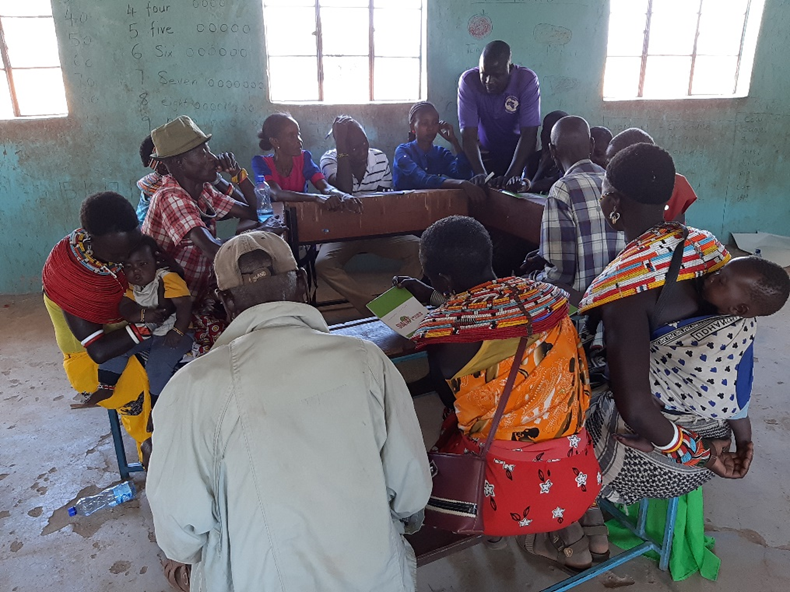
Ever mindful of the interventions to achieve the objectives of the organization within a quality theory-practice mind-set, Shalom-SCCRR gave particular attention to the following issues in 2019:
- Role of women in conflict and peace building
- Methodologies to transform natural resource and environment related conflicts
- Researching and countering the underlying causes of radicalization and extremism-terrorism (see Article – “Radicalization and Extremism in Eastern Africa: Dynamics and Drivers” by Patrick. R. Devine: Journal of Mediation and Applied Conflict Analysis, 2017, Vol. 4, No. 2)
- Developing interreligious ‘Dia-Praxis’ conflict and development interventions (dialogue and practical project cooperation)
- Empowerment of ethnic influentials through training on negotiation and mediation leading to the establishment of specialised grassroot structures engaging in these processes.
- Empowerment of community resource persons on conflict and peace monitoring
- Post-election reconciliation in the aftermath of sporadic violence
- Progression of the strategies and dynamics of advocacy and empowerment imparted to government institutions of administration and conflict management
- Ongoing-review of Shalom-SCCRR educational peace manual for school curriculums
- Dynamics between conflict transformation and the development of interethnic and interreligious schools
- Dynamics of pastoralist nomads transitioning to arable farming
- Development of competent conflict transformation strategies for women and youth organisations in the slum areas of Nairobi
- Engagement with the conflict warriors in conflict behaviour transitioning
- Transformation of identity based inter-ethnic conflicts to reconciliation
- Course content on ‘Conflict Resolution and Reconciliation’ taught at Tangaza University College
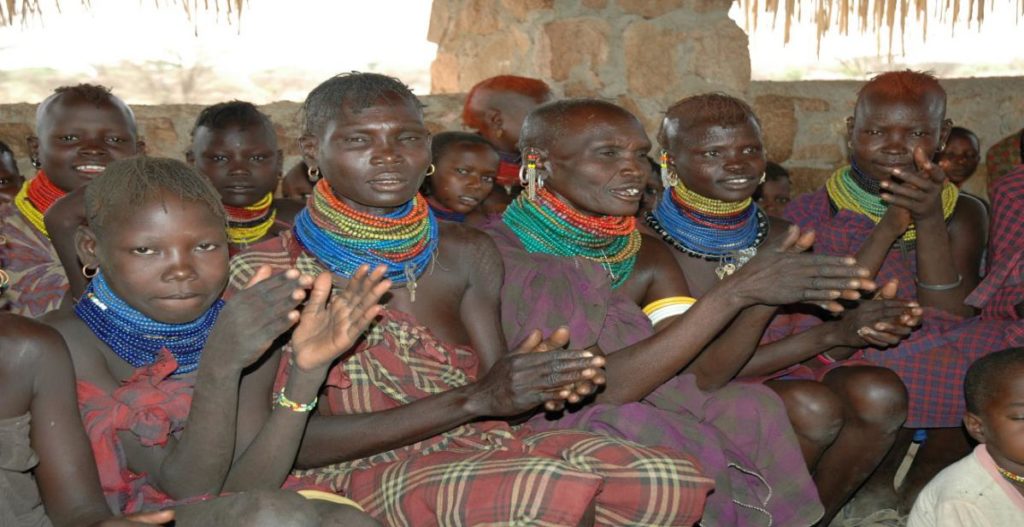
Shalom-SCCRR’s Director of Research, Prof. W.K Omoka, PhD, supported by the Monitoring, Evaluation, Reporting and Learning team (MERL) team led by Francis Mwangi, MA are assiduous in respect to research methodology and ensuring the organizations interventions are kept to the optimum level. The continuing enthusiastic and voluntary participation of government, religious and civic society associations in Shalom-SCCRR conferences, conflict transformation and peace training programs, research collection methodology, advocacy on justice peace and reconciliation issues, inter-religious Dia-Praxis initiatives fostering of inter-ethnic and interreligious education, institutional developments, confirms the importance of our organization’s contribution.
Shalom-SCCRR personnel collaborate in numerous project initiatives with government and IGAD (Intergovernmental Authority on Development) personnel, on humanitarian-peace-development interventions. Particular attention has been also applied to training skills in CEWARN (Conflict Early Warning) in all the places we work. Shalom-SCCRR continues to advocate for the Great Green Wall across Northern Africa; this is the construction of a 15 kilometres wide barrier of trees and other cultivations to prevent the spread of the Sahara desert southwards, and associated desertification conflict problems. Shalom-SCCRR is constantly monitoring the impacts of environmental factors, such as climate change, on peace and conflict quotients. I have addressed this issue at public events and lectures in Africa, Europe and the USA. The advocacy role of Shalom-SCCRR in these processes involves expertise and persistency and this is one of the reasons that all our team must have a minimum of a MA qualification in relevant academic disciplines.
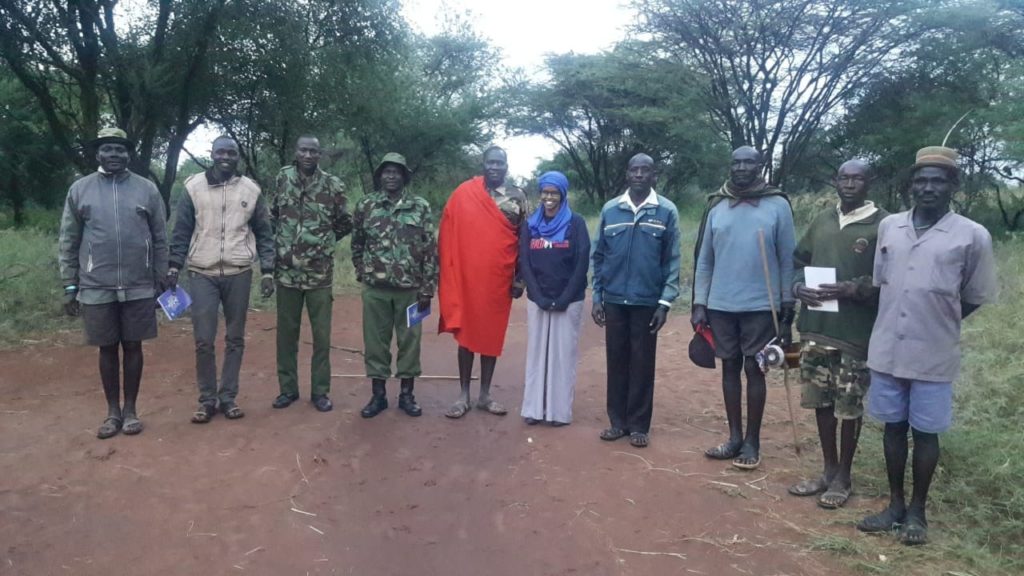
Elections and Violence
We should never forget that during post-election violence in Kenya in the past decade almost 1,300 people were killed, tens of thousands maimed, and hundreds of thousands displaced. In 2013, the peaceful election process resulted in numerous narratives of appreciation for Shalom-SCCRR, from far and wide, for its role in preventing election violence in many locations. In 2017, after the decision to repeat the Presidential election process, Shalom-SCCRR highlighted a few potential hotspots which unfortunately proved accurate. One location was where the Luo and Kalenjin ethnic communities interfaced with each other. Throughout 2018-19 we intervened intensively with analytical and reconciliation processes, working with the key influential opinion shapers from both ethnic communities accompanied with government administrative personnel.
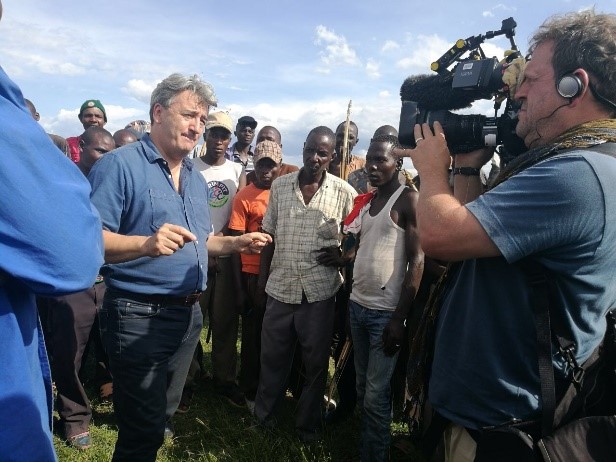
This has already led to significant results on a road map to sustainable peace ameliorated by joint development initiatives. Shalom-SCCRR’s professionalism received wide ranging attention and coverage from media outlets in Africa, and globally, such as BBC, Voice of America (VOA) Germany’s Deutsche Welle, several Irish media outlets, Xinhua News Agency in China, Terry Collins and Associates-Global Media Relations in Canada, Living Faith in India, Independent Catholic News in the UK, and many other news mediums.
Governance and Fundraising
The highly qualified board of Shalom-SCCRR (Africa) were dedicated and meticulous in providing leadership, oversight, expertise and wisdom. This strong structure and leadership empowered Shalom-SCCRR to an authenticity of the highest order in delivering on the vision, mission, methodology and core values.The audited accounts are also an important element and core reflection of the quality of governance and administration of Shalom-SCCRR. In 2019 Shalom-SCCRR showed itself to be an exemplary, resilient and robust organisation in all its relationships and transactions. Sincere thanks to all the board members.
The importance of external fundraising, in collaboration with the contributions of local communities, to realize the vision and mission of Shalom-SCCRR cannot be underestimated. Through the generosity of donors offering funding, labour, time, and prayer to the cause of Shalom-SCCRR, we are able to operationalise the objectives of our organization. The support of the African people where Shalom-SCCRR works is also much honoured. Our audited accounts are an expression of appreciation to the kindness of our donors, while also highlighting the accountability of Shalom-SCCRR in fulfilling its mission in line with donor intentions.
During 2019, we continued to strengthen fundraising processes in the affiliate branches of Shalom-SCCRR around the world. Internationally, we have registered affiliate branches in the Republic of Ireland, UK-N. Ireland, and the USA (Shalom Center of Africa – 501c3). Each of these entities has their own independent board’s functioning as satellite support units to the work of Shalom-SCCRR in Africa. These partnerships enabled Shalom-SCCRR to become more autonomous, self-reliant, and pure of purpose in line with our objectives for providing conflict transformation and peace building programs, educational development projects to schools and other social infrastructure projects. The gratitude of Shalom-SCCRR in Africa and that of our beneficiary communities is immense. We continue to welcome the ever increasing number of individual donors to our support units.
We informed Trocaire, a development agency, of our decision to end the partnership with them. We have assisted Trocaire with Shalom-SCCRR expertise to transform conflict issues that hinder sustainable development in the areas where they work. Shalom-SCCRR wishes to acknowledge the valuable work of Trocaire and express our appreciation for all the ways we mutually supported each other. We are most appreciative to Mr. Paul Healy, the outgoing Director of Trocaire in Kenya who has moved on to their Somalia Program, for all his correspondence and letters of appreciation to us. In zones of persistent manifest violence and war, sustainable development is practically impossible without first transforming the underlying causes of conflict. Shalom will continue to advise accordingly.
Respect for the dignity of life, human rights, the carrying capacity of the environment, and appreciation for ethnic and religious diversity are central to the legitimacy of Shalom-SCCRR’s interventions. Shalom-SCCRR’s core values are non-violent conflict transformation, integral human development and security, integrity, respect for local culture/traditions, and justice. To support our governance we continue to strengthen our array of organizational policy documents, to ensure continued optimum good practice, accountability, effectiveness, efficiency, and transparency throughout the organization.
Appreciation to our Management and Staff
Our gratitude goes to Shalom-SCCRR’s management and team members for their accountability and dedication to high standards during the year.The board again offers its utmost appreciation to Fr. Oliver Noonan, MA, Executive Director, for exemplary professionalism in project implementation and the financial administration of Shalom-SCCRR-Kenya. The board also wishes to thank the Director of Program’s, Godfrey Okoth MA, for his stewardship and integrity, assisted by Joyce Wamae MA, Program Manager, and Paulson Erot Tadeo MA, Program Manager, for their proficient role in planning, design and application. The contribution of Prof. Wanakayi Omoka, Director of Research and Dr. Peter Linus, the Director of National Strategy, made a significant contribution to the quality, feasibility and success of our project implementation throughout the year. Our appreciation extends to the Shalom-SCCRR finance department of accountant Duncan Akhobe, CPA, Dip-KNEC, B.Com, and his assistant accountant Kipkoech Kipruto ACCA, and all involved in auditing our accounts, for their integrity, professionalism and rigour.
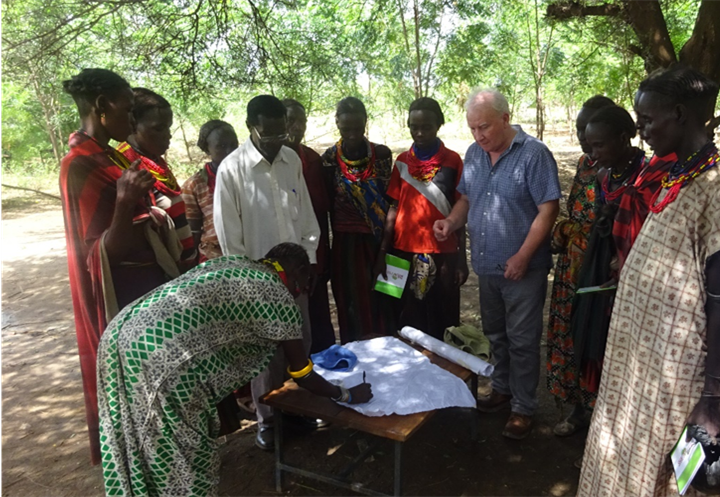
Our immense appreciation is due to the whole 2019 Shalom-SCCRR team, and all organisational partners for their dedication, collaboration, project implementation and the quality of results unfolding. Our ‘project product delivery’, in respect to the conflict transformation achieved, stability of peace progressing, and human-environmental security emerging, is visible proof of your exceptional contribution towards Shalom-SCCRRs life-changing interventions. Over of the past ten years work, the lives of hundreds of thousands of men, women, children and families, living previously in dire situations have been positively transformed for ever, in ways that will impact present and future generations with hope and security. Because of the work of Shalom-SCCRR, it is innumerable the amount of individuals, families, and communities who are alive and well today, able to interact with the ‘Divine’ in a wholesome manner, experience the joy of living in societies where peace, truth, justice and mercy are taking deep root, and are able to meet their basic human needs and actualize their potential.
International Engagements and Academic Lectures
The Shalom-SCCRR Humanitarian-Peace-Development nexus of interventions continues to attract attention worldwide. In November, I accepted the invitation from the University of San Diego to give a lecture concerning, ‘Conflict Transformation Methodologies and Processes’. The substance of the lecture centered on analytical and conflict transformation approaches applied by Shalom-SCCRR in dealing with issues of manifest and structural conflict, radicalization and extremism. Much appreciation is due to the organizers. My appreciation also extends to the wider community in the San Diego area for organizing other engagements to enhance fundraising and the organizational development of Shalom-SCCRR on the west coast of the US! These events are very important opportunities to enable sharing about our organization with diverse audiences of academia, social practitioners, religious representatives, politicians, civil society actors and all people of good-will.
In Kenya, Shalom-SCCRR personnel continue to lecture at various Third level colleges, such as the MA course on Social Research and Statistics at Hekima University College, and the course on Conflict Resolution and Reconciliation at Tangaza University College. Other members of the team were involved with the University of Nairobi and Strathmore University College.
University invitations to present lectures at Harvard in the USA, Maynooth in Ireland and Durham in England have already been received for 2020. MoUs and partnerships with IGAD, Edward M. Kennedy Institute for Conflict Intervention at the Maynooth University, Ireland, Senator George Mitchell Institute for Global Peace, Security and Justice at Queens University Belfast, AMECEA (Association of Member Episcopal Conferences in Eastern Africa), ACWECA (Association of Consecrated Women in Eastern and Central Africa) and the Society of African Missions (SMA) are valued relationships for Shalom-SCCRR.

The SDGs in the Context of Peace
SDG No. 16 aims to promote peaceful and inclusive societies for sustainable development, provide justice for all, and build effective, accountable and inclusive institutions at all levels. It asks “how can a country develop—how can people eat and teach and learn and work and raise families—without peace? And how can a country have peace without justice, without human rights, without government based on the rule of law?
That goal is specifically focused on positive peace in societies where sustainable development can take place and be effective. All of the SDGs are inter-linked and predicated on a minimum of negative peace and the potential for the realisation of positive peace. They recognise that sustainable development without sustainable peace is not possible.
The UN Sustainable Peace Initiative places preventive action and post-conflict peace-building on par with peace-making and peace-keeping. The report by the Secretary General to the High Level Meeting on Sustaining Peace held in New York in April 2018 has laid the groundwork for an important policy-breakthrough, empowering civilians with new tools, better management practices, and hopefully new financial resources to contribute to a more integrated and coherent framework for global conflict management that delivers positive peace.
Important features of the initiative are:
- It elevates the role of civil society and regional organisations in sustaining peace.
- It stresses that the UN development system and development practitioners in general are central to conflict prevention and sustaining peace.
- It buttresses the case for “more predictable and sustained financing” for civilian-led peace-building through a proposed Funding Compact with Member States, against the backdrop of declining development assistance to conflict-affected countries as a share of global aid (from 40% in 2005 to 28% in 2015).
We welcome the elevation of the role of civil society in sustaining peace, and support the case for “more predictable and sustained financing” for civilian-led peace-building. Shalom-SCCRR is well placed to play a leading role within civil society and in collaboration with other actors.
During 2018, the government of Ireland issued a public consultation paper seeking ideas and suggestions for consideration in its forthcoming new policy on its overseas aid programme. Based on our professional knowledge and expertise and our practical experience, we made a substantial submission advocating that Ireland’s new aid policy should include focus on peace-building and conflict transformation (www.shalomconflictcenter.org). In 2019, we were delighted to see our contribution reflected in the final document. However, Shalom-SCCRR continues to advocate that more emphasis be applied to the substance and methodology necessary for conflict resolution and reconciliation within a framework continuum of, ‘humanitarian-conflict transformation-negative peace-development-positive peace’.
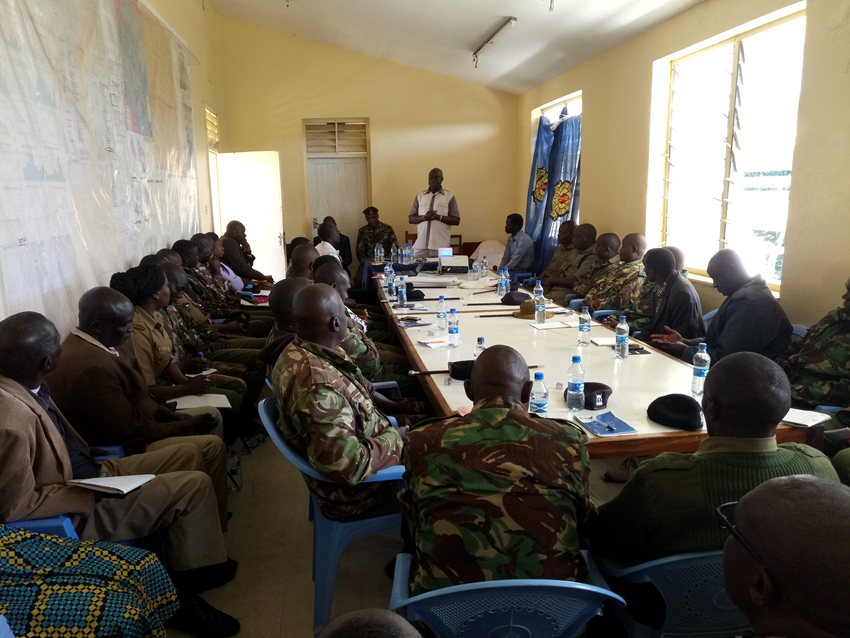
The ‘Shalom’ Concept
The living generic meaning of ‘Shalom’, and its cognates Salaam, Salem, Salamu, centres on peace, justice and reconciliation holistically integrated. As a process, ‘Shalom’ is about achieving integral human security among and between people. All of us, together, can bring about deep-rooted transformation of conflict generating issues and structures through Conflict Management Training, Research, Peace Education, Problem Solving Workshops, Inter-ethnic and Inter-Religious Schools and other Integrated Development Projects.
Engaging the Future with optimism, judiciousness and dynamism
The year ahead will build and expand on the achievements and success of Shalom-SCCRR. Let’s move forward together with a convictional unity of purpose. Our vision believes in adhering to the right long term policies in our approach to conflict resolution and reconciliation, resisting to settle for ‘short term quick fixes’ or the transient gains of myopic insular politics. Many people in remote, violent and poverty stricken environments are waiting to experience ‘Shalom’.
Through our social media, the Shalom-SCCRR communication department continues to make public and transparent the processes engaged in, outputs achieved and results accomplished while outlining lessons learned and strategic improvements going forward. Once again, our deep felt gratitude to all our donors for their involvement in the progress of this humanitarian-peace-development nexus; it cannot be emphasised enough. May the blessings of peace be experienced by all who are involved in the vision, mission, fruits and goodwill of Shalom-SCCRR.
In thanking our donors, those who offer prayers and well-wishers, let me assure all, that Shalom-SCCRR will be diligent in fulfilling our objectives to the highest standards, in the year ahead. The people we work among and our donors are ever on our minds and deserve our absolute fidelity. We should never forget that all that is needed for evil to triumph, whether in the form of violence, injustices, lies or envy, is for good people to do nothing. From a short and long term perspective, being an armchair general or parasitically sitting on the fence while millions suffer from conflict and marginalization is an appalling indictment.
There are no limits to the positive interventions that can be made to bring about sustainable peace, development and reconciliation. We all need continual assistance, education and formation in order to know what makes for peace! The road to peace is not easy but the quest is forever worthwhile. Today is the first day of the rest of our lives!
Our conflict transformation and integral human development interventions going forward will center on acknowledging the past, reframing the present, and envisioning a future built on the authentic realization of Shalom-SCCRR’s vision, mission and objectives.
SHALOM, SALAAM, SALAMU, SALEM,

Fr. Patrick Devine, Ph.D, Chairman, Shalom-SCCRR, Kenya
…………………..……………………………………………………………………………………………..
SHALOM-SCCRR TEAM-EAST AFRICA
Board of Directors (Kenya)
Rev. Dr. Patrick Devine, MA, BD, Dip Mission Studies, Chairman
Prof. Robert Mudida, PhD, MSC, MA, BD, Board Member (Kenya)
Dr. Michael Comerford, MA, BD, BA, Board Member, (South Sudan)
Rev. Oliver Noonan, MA, BD, Dip Mission Studies, Board Member, (Eastern Africa)
Ms. Rosaline Serem, MBA, BA, Board Member, (Kenya)
Mr. Sean White, MSC, BA, Board Member (Kenya)
Rev. Janus Machota, BD, BA, Board Member, (Tanzania)
Management
Rev. Oliver Noonan, MA, BD, Dip Mission Studies, Executive Director
Prof. Wanakayi K Omoka, PhD, MA, BA, Director of Research
Dr. Peterlinus Ouma, MA, BA, Director of National Strategy
Mr. Godfrey Okoth, MA, BA, Director of Programs
Mrs. Joyce Wamae MA, BA, Program Manager (Urban Settlement Program)
Mr. Paulson Erot, MA, BA, Program Manager (Northern Kenya Program)
Mr. Francis Mwangi, MA, BA, Monitoring, Evaluation, and Learning(M, E&L) Coordinator
Mrs. Judith Akedi-Linus, MA, BA, Program Officer, Team Leader
Mr. Austin Ngacha, MA, BA, Program Officer, (Educational School Projects), Team Leader
Mr. Arthur Magero, MA, BA, Program Officer, Team Leader
Ms. Esther Kibe, MA, BA, Program Officer, Team Leader
Mr. Kennedy Odhiambo, MA, BA, Program Officer
Ms. Asha Said Awed, BA, MA Candidate, Program Assistant
Rev. Julius Chelanga, MA, BD, Program Assistant
Mr. Duncan Akhobe, CPA, Dip-KNEC, Accountant – Finance and Administration Manager
Mr. Kipkoech Kipruto, ACCA, Accountant, Further Studies
Mr. Ken Otieno, Transport /Logistics Coordinator, Further Studies
International Volunteer Consultants : Background experience
Ms. Sheena McMullen, MA, BA, (Peace and Reconciliation Studies, N. Ireland/UK)
Ms. Matilda Brolin, LLM, (Harvard Law School, Ministry of Foreign Affairs, D.R.Congo)
Ms. Fabiana Pardi Otamendi, LLM, (Harvard Law School, UN Human Rights, White & Case LLP, France)
Rev. Dr. Michael McCabe, BA, BD, (SMA, Ireland; Inter-Faith Dialogue)
Rev. Michel Savadogo, MA, BA, BD, (Shalom, Cote D’Ivoire, West Africa)
Dr. Conrad Bosire, PhD, MA, BA, (Constitutionalism and Devolution, Kenya, East Africa
Mrs. Nancy Mirara, MA, Counselor-Psychology, Ebul-bul Education & Counselling Center (EECC), Mediator in A.D.R


